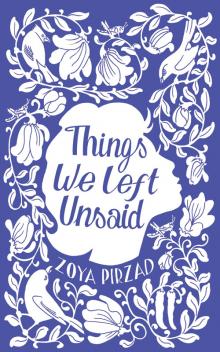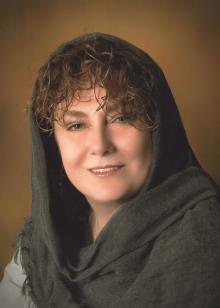Review: 'Things We Left Unsaid'
A unique perspective on domestic life in pre-revolution Iran
By Jessi Cape, 11:29AM, Mon. Sep. 10, 2012
In Zoya Pirzad’s recently translated novel, Things We Left Unsaid (OneWorld Publications, $17.95), mysterious new neighbors disrupt an Iranian housewife's peaceful routine of 1960s suburbia and spur her inner turmoil and community drama.

Mrs. Simonian, an older woman of very short stature and extremely brusque tendencies, rules with an iron fist over her son Emile, a dreamer with light eyes, and his possibly disturbed daughter Emily. The Ayvazian children immediately adopt Emily into their circle and as the adults’ story progresses, a parallel soap opera develops with the children.
An awkward dinner party at the Simonians’ residence propels Clarice into an uncomfortable headspace, thereby setting the pace for the rest of the novel. Reminiscent of a Miss Havisham-type plunge into an alternate reality, Mrs. Simonian, dressed in floor-length black silk and extravagant jewels, serves intensely spicy food and hosts her guests in a small dark room filled with furniture and décor randomly selected from a former life of abundance. Yet it is during this encounter that Clarice witnesses a glimpse of the true household dynamic – one of a past shrouded in secrecy and pain. Clarice forms a fragile bond with Mrs. Simonian after an unexpected compliment. Emile, often cowering to his mother, begins to expose to Clarice his real self: poetic, chivalrous, brilliant, and attractive. Her fascination and curiosity are piqued and her swelling emotions, perhaps formerly tucked away regarded as appropriate only for single women in their youth, are unsettling as they surface.
The subtle undercurrent of feminism in Things We Left Unsaid provides a unique perspective on pre-revolution Iranian culture – one often associated with docile women and domineering men. The growing neighborhood tension supplies fodder for gossip and speculation, and this further alienates Clarice from her regular existence – and herself. More perceptive and intuitive than anyone else in her small world, Clarice’s mind spins constantly with what-ifs and confusion about her own behavior as related to the oddities around her. Clarice finds an unlikely escape from her strange chaos with a prominent woman who takes an interest in Clarice’s knowledge of Armenian culture. The women’s suffrage movement is underway and their attempts to bridge societal gaps aim to join groups of women in their political efforts. The clandestine meetings and long walks allow Clarice time to sort her thoughts as she questions everything she thought she knew.
Pirzad peppers the story with various idiosyncratic personalities and side plots, yet the tone of Things We Left Unsaid hardly strays from its even keel. This seems to be reflective of the intensity of Clarice’s internal struggles as the rest of her world goes along humdrum as usual, almost completely oblivious to the psychological rollercoaster, save for some heated conversations and dating drama. Artoush’s political associates and a gorgeous blond blind date for Emile clarify for Clarice that sorting out her own desires is imperative to her happiness, and consequently, to that of her family.

The smorgasbord of thematical elements in this work of fiction – set in Adaban, Iran, the author’s hometown – transcend boundaries of culture and time. Present throughout the story, the feeling of building toward an intense climax releases in an odd, metaphorical, and literal swarm of Biblical proportion, and quiet epiphanies galore. Yet, surprisingly, Pirzad closes her novel with a graceful refusal to give any exact revelations. The sparked imagination for both characters and reader is beautiful, but it is truly the things Pirzad leaves unsaid that make this book so good.
A note to readers: Bold and uncensored, The Austin Chronicle has been Austin’s independent news source for over 40 years, expressing the community’s political and environmental concerns and supporting its active cultural scene. Now more than ever, we need your support to continue supplying Austin with independent, free press. If real news is important to you, please consider making a donation of $5, $10 or whatever you can afford, to help keep our journalism on stands.
March 15, 2025
Things We Left Unsaid, Zoya Pirsad, Iran








